Recent Articles
Popular Makes
Body Types
10 Top Sports Cars with Manual Transmissions
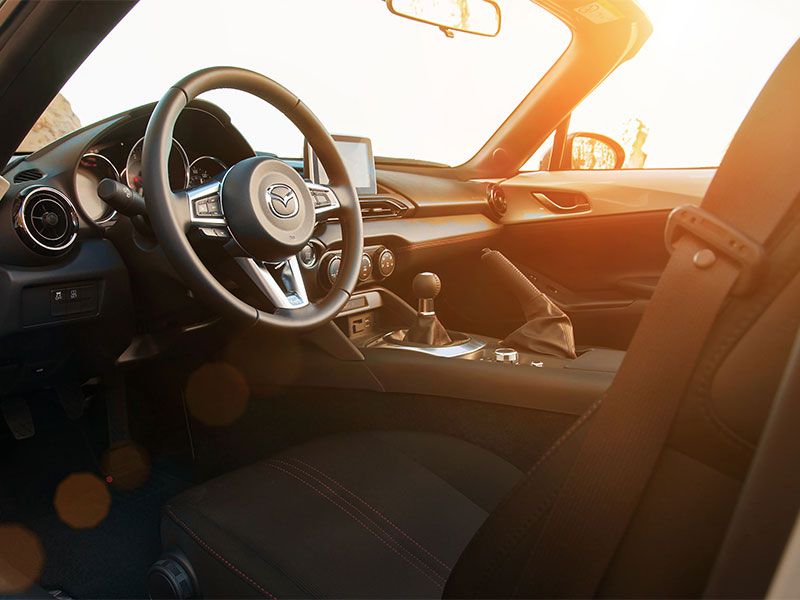
2016 Mazda MX 5 Miata interior manual transmission gear shift ・ Photo by Mazda
Buy one of these 10 sports cars with manual transmissions while there’s still time. Ferrari, Lamborghini and McLaren are going down the automated manual/dual-clutch route. And self-driving cars no doubt have their advantages in regard to safety. But where does that leave us, the enthusiasts who actually like to drive and even shift our own gears? Twiddling our opposable thumbs, that’s where. Computers will never know the thrill of controlling a powerful, high-revving naturally aspirated engine. We decide when it’s right to change up a gear, not some one-size-fits-all software. Manual transmissions mean more involvement, and we all know the simple rule: the more you put into something, the more you get out of it.
2017 BMW M2
Cars tend to grow larger and heavier with each generation. When BMW created the M2, everyone holding cherished memories of the original M3 (before it became heavier, more muscular, and more daunting) hoped this high-performance version of the tiny 2 Series could be similar. It is. The M2 is agile, powerful for its size (365 hp and 343 lb-ft of torque, or 369 lb-ft on overboost) and comes with a 6-speed manual transmission as standard. The engine is an inline-6 and the car uses just rear-wheel drive — both ingredients make a classic BMW setup. Okay, at 4.1 seconds from standstill to 60 mph, the dual-clutch version is a couple of tenths faster. But does that really matter?
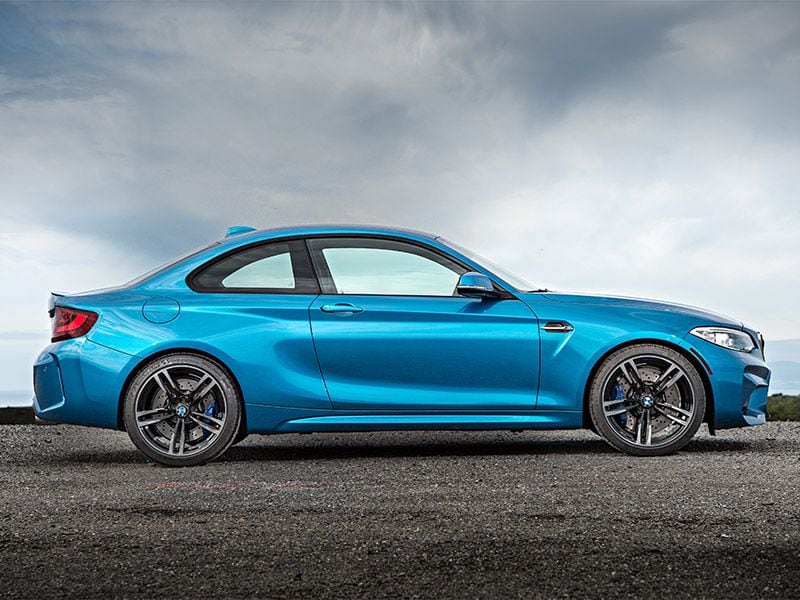
Photo by BMW
2017 Chevrolet Corvette
This generation of Corvette is a world-class sports car. Yet with a 6.2-liter V8 up front and rear-wheel drive, it follows in the grandest American tradition. It has the best-handling suspension to ever wear a Corvette badge and the manual gearbox holds seven forward ratios plus a feature called Active Rev Match. This is a computerized throttle blip to match engine speed with road speed when changing down. In the old days, a driver had to develop a heel-and-toe technique, working three pedals to brake, operate the clutch and nudge the throttle to keep things smooth. The basic Corvette enjoys 455 hp and 460 lb-ft of torque — a great amount of power for a fiberglass-bodied 2-seater.
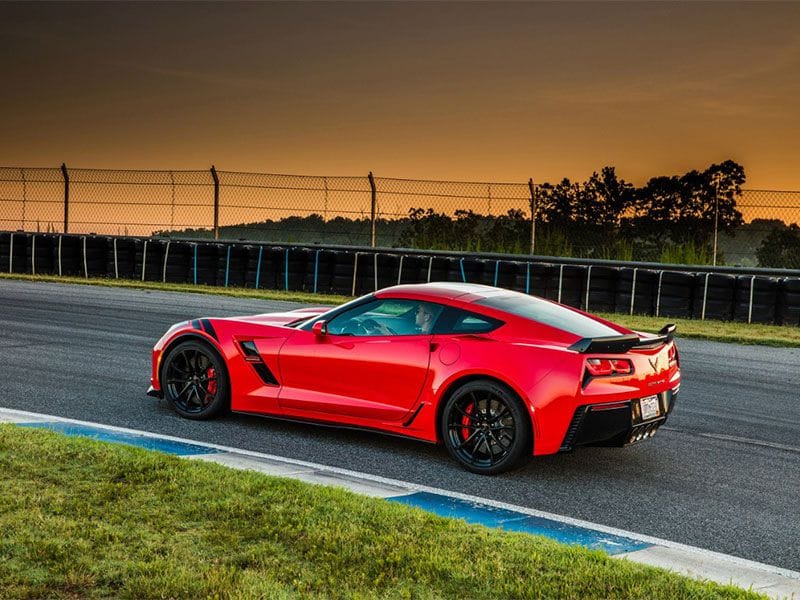
Photo by General Motors
2017 Dodge Viper
Thank goodness this car is still being made. The 2-seater body is fiberglass, so the weight is really light. And linked to a 6-speed manual transmission is a hulking great 8.4-liter V10 engine up front, guaranteed to destroy the rear tires with a monstrous 645 hp and 600 lb-ft of torque. The Viper is kind of legendary. It’s a handful that allows drivers to turn off the traction control completely. Only the bravest and most highly skilled should ever attempt to push this car anywhere near its limits. Sprinting from standstill to 60 mph is done in around three seconds and top speed is the best part of 200 mph. Looks pretty darn cool, too.
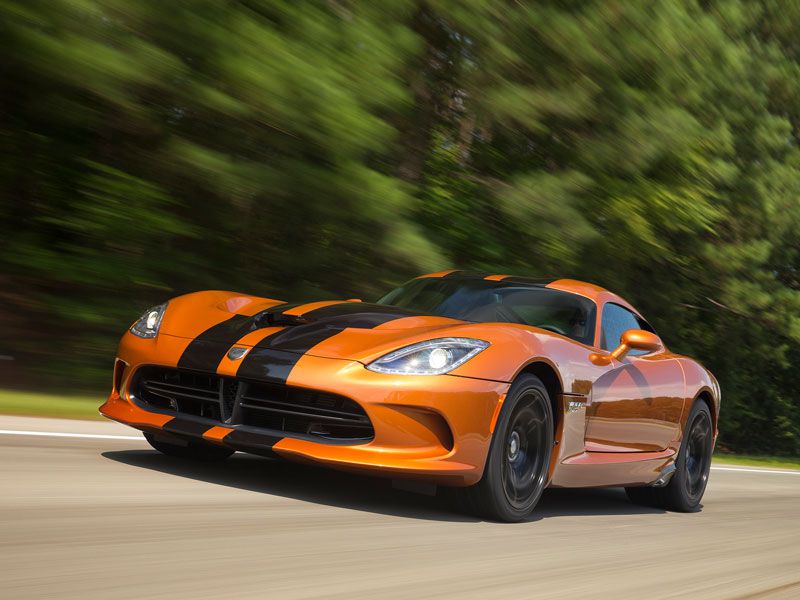
Photo by Dodge
2017 Fiat 124 Spider Abarth
The Fiat 124 Spider is based on the Mazda MX-5, which is a fine place to start. The chassis is so well tuned that it can easily handle more than the 155 hp that Mazda provides. Fiat’s idea is to run a turbocharged 1.4-liter 4-cylinder engine that pushes out 164 hp and 184 lb-ft of torque. Abarth used to be an independent Italian tuner, but is now part of Fiat. As well as some cool badges with a black scorpion emblem, the Abarth treatment brings a Bilstein suspension (the brand that Porsche uses) and a mechanical limited-slip rear differential for optimum traction. It’s a purist approach, so naturally there’s a 6-speed manual transmission.
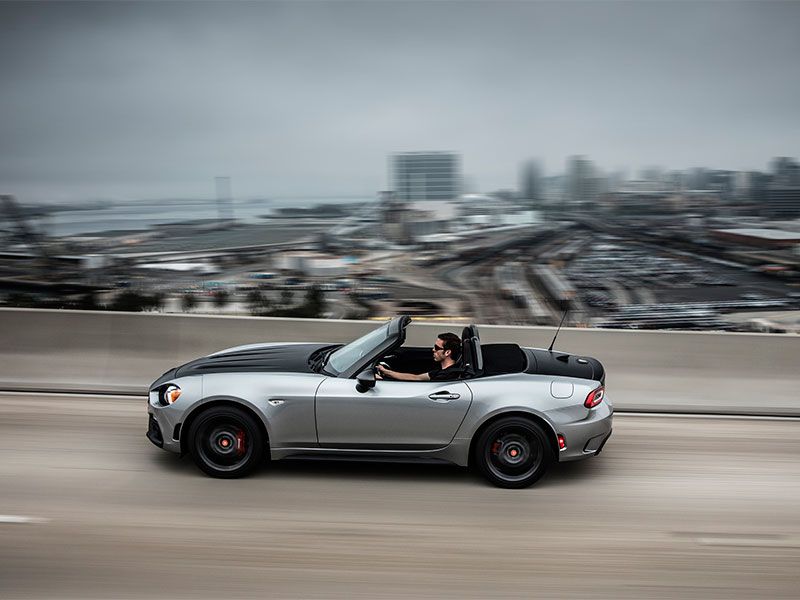
Photo by Fiat Chrysler Automobiles
2017 Jaguar F-Type
It might surprise some people that a Jaguar is available with a manual transmission. The company’s automatics are well known, first with the “J-gate” shift arrangement and now with the rotary selector. But rear-drive versions of the F-Type coupe and convertible with the supercharged 3.0-liter V6 (in 340-hp and 380-hp forms) offer the no-cost option of a 6-speed manual. It’s sourced from ZF, one of the great manufacturers of transmissions who supply practically everyone. And those wishing to take up or preserve the ancient art of heel-and-toeing will find the manual F-Type’s pedals are perfectly placed. It almost makes you want to break out the driving gloves and goggles.
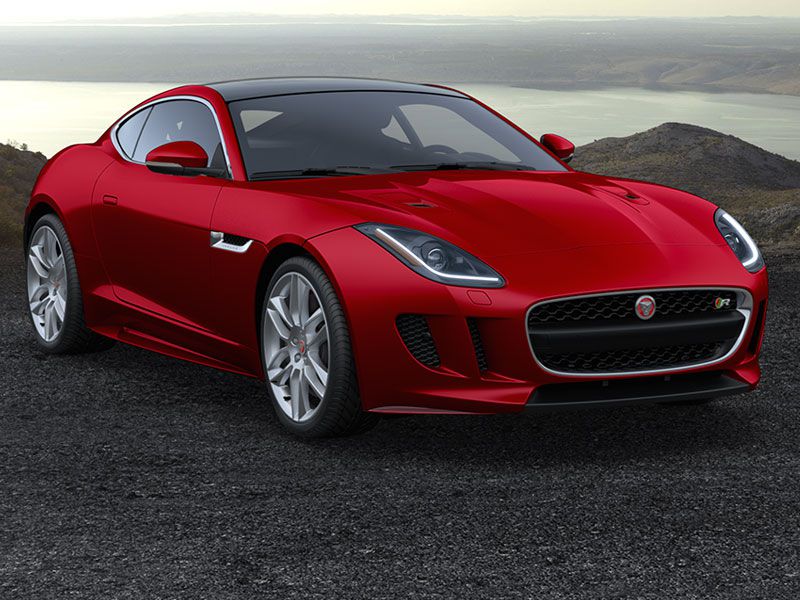
Photo by Jaguar Land Rover
2017 Mazda MX-5 Miata
A big engine does not a sports car make. Some machines are more of a package, where the handling and looks are all part of an affordable whole. And there’s a Spec Mazda racing series, making the MX-5 one of the most popular rides among weekend track rats. With just 155 hp and 148 lb-ft of torque from a 2.0-liter 4-cylinder engine, there’s enough energy to have fun and learn about the joys of a rear-drive car without getting into big trouble. And the 6-speed manual transmission is a perfect ingredient. The true enthusiast knows that pushing a lesser machine to its limits is more fun than having a powerful car and never experiencing half its potential.
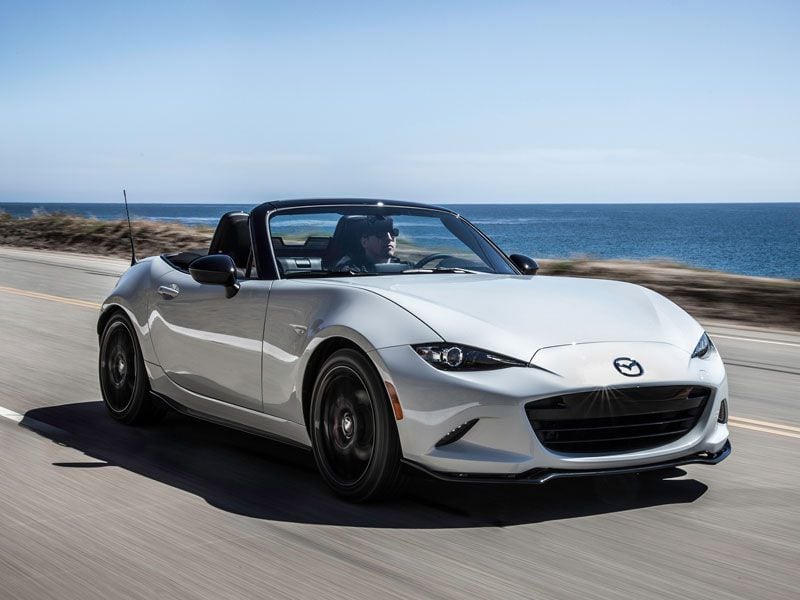
Photo by Mazda
2017 Mini Cooper John Cooper Works
Sporty cars aren’t just 2-seaters with rear-wheel drive. Ask anyone with a Mini. This front-drive fun machine comes in its sportiest form as a John Cooper Works model. This entails a stiffer suspension, plus 228 hp and 236 lb-ft of torque from a turbocharged 2.0-liter 4-cylinder engine. Front-drive cars are easier than rear-drivers to steer just on the throttle — ease off a touch to bring the tail around. On a long curve, you might be making several small adjustments with the right foot. That thrill is enhanced by the JCW’s 6-speed manual transmission, giving complete control of when to change up or down, especially useful when keeping the turbocharger on song.
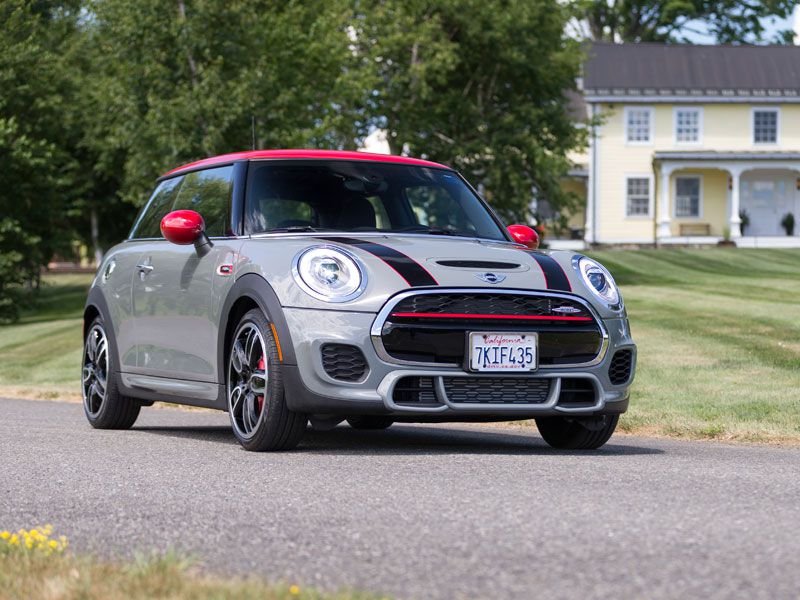
Photo by MINI
2017 Nissan 370Z
Nissan’s Z cars have a great heritage going back to the days when the company was called Datsun. The current model is admittedly getting a bit old (a new generation of Z is expected for 2018), but still has a 332-hp, naturally aspirated 3.7-liter V6, rear-wheel drive and a 6-speed stick shift going for it. It even uses a carbon fiber driveshaft, so there’s less weight to get spinning (than a steel equivalent), making the engine feel more responsive. The manual gearbox has SynchroRev Match (like the Corvette’s rev-matching function) that prevents any lurching when shifting to a lower gear. Because smooth driving is quick driving.
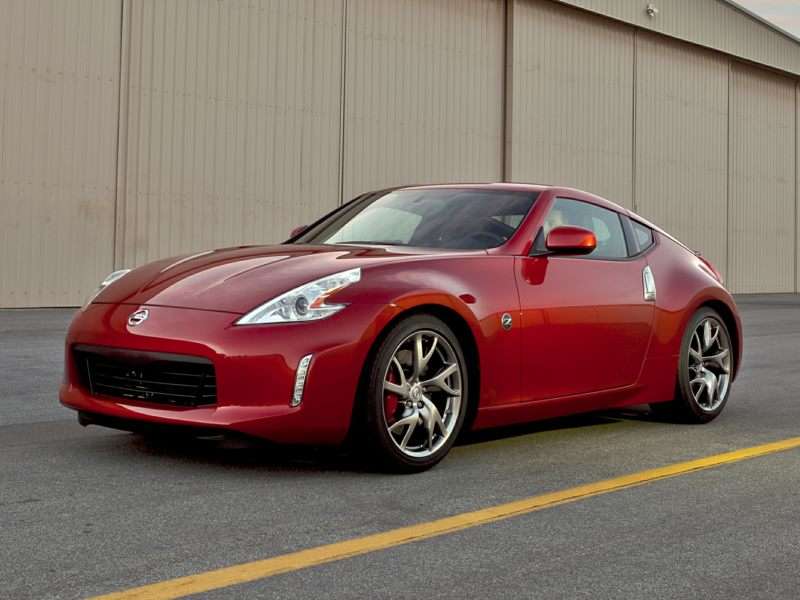
Photo by Nissan
2017 Porsche 911
Some pretty fancy 911 variants are available these days, like the Turbo and GT3 RS. There’s still a lot to be said, though, for the basic rear-drive Carrera with a 7-speed manual gearbox. Porsche has now embraced turbocharging even in its entry level models, which came as a bit of a shock. Yet it’s still a 911, one of the finest sports cars in the world. So it’s engineered to produce a wonderful and singular driving experience. The least powerful model has 370 hp and 331 lb-ft of torque. That may not sound like much, but good luck exploring those limits anywhere away from a track. There are more expensive supercars, but the 911 hasn’t become an icon just by luck.
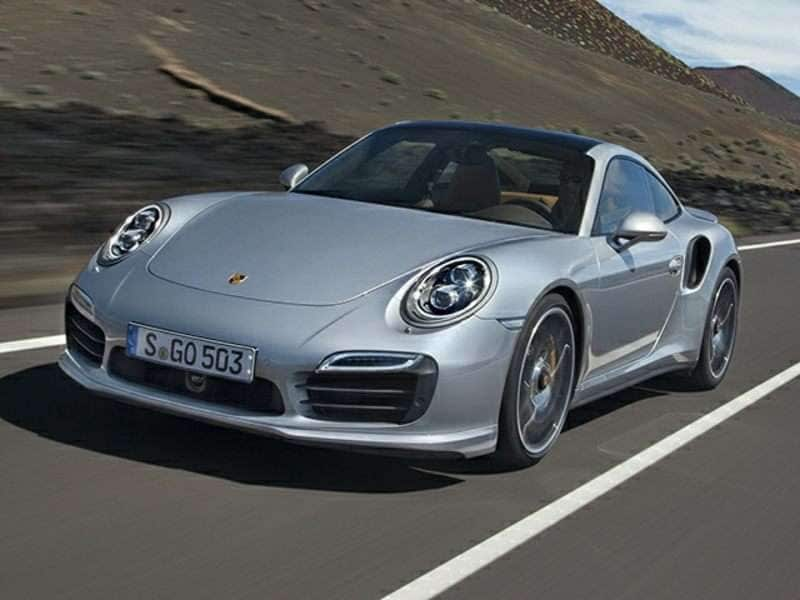
Photo by Porsche
2017 Volkswagen Golf R
Part practical hatchback, but mostly a sports car in the wider sense of the term. This is the most powerful Golf available, with a turbocharged 2.0-liter 4-cylinder engine delivering a remarkable 292 hp and 280 lb-ft of torque to all four wheels through a 6-speed manual transmission. This can be an everyday car that still makes every trip special. The Golf R is yet another example where the optional dual-clutch automated manual is nearly half a second quicker in the sprint from standstill to 60 mph (4.9 seconds, according to VW), but how many of us would really prefer that short space of time over the extended periods of involvement a stick shift can offer?
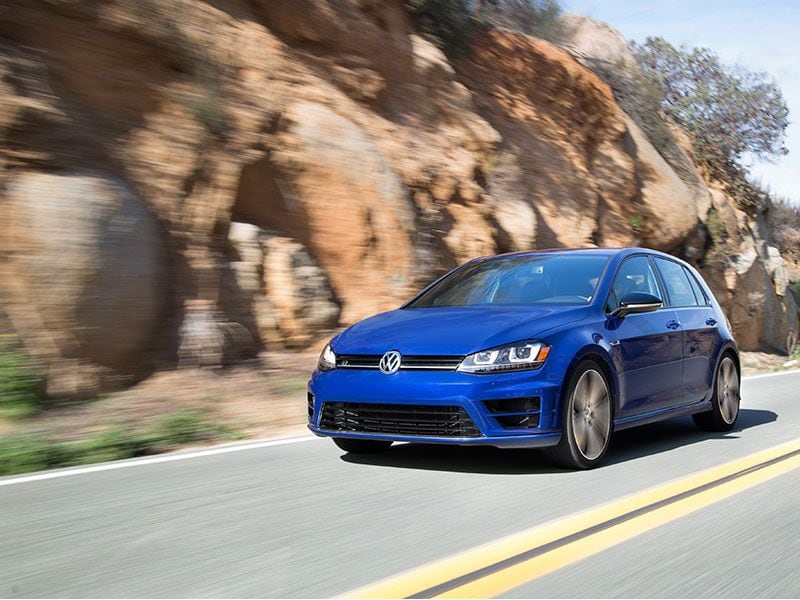
Photo by Volkswagen